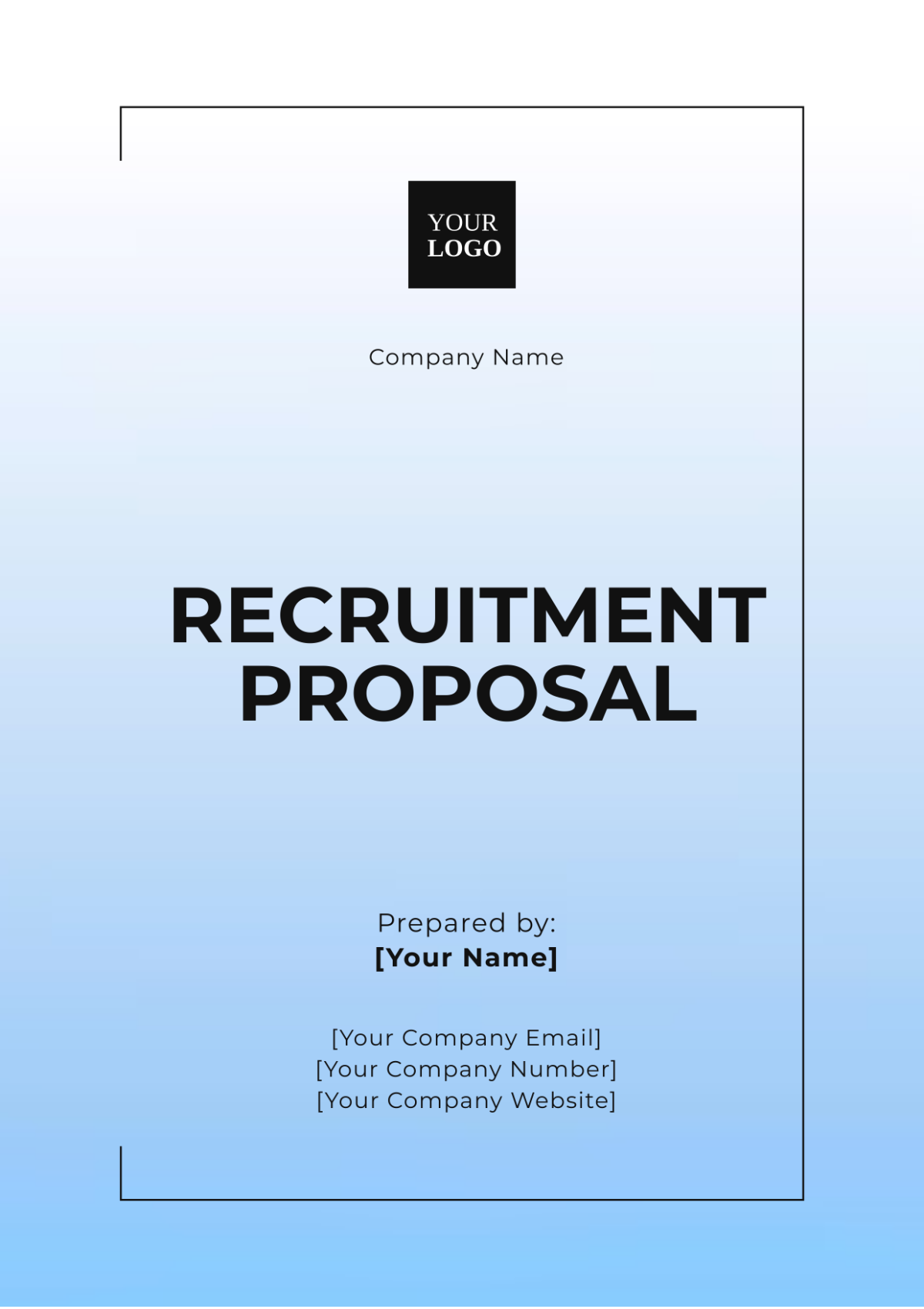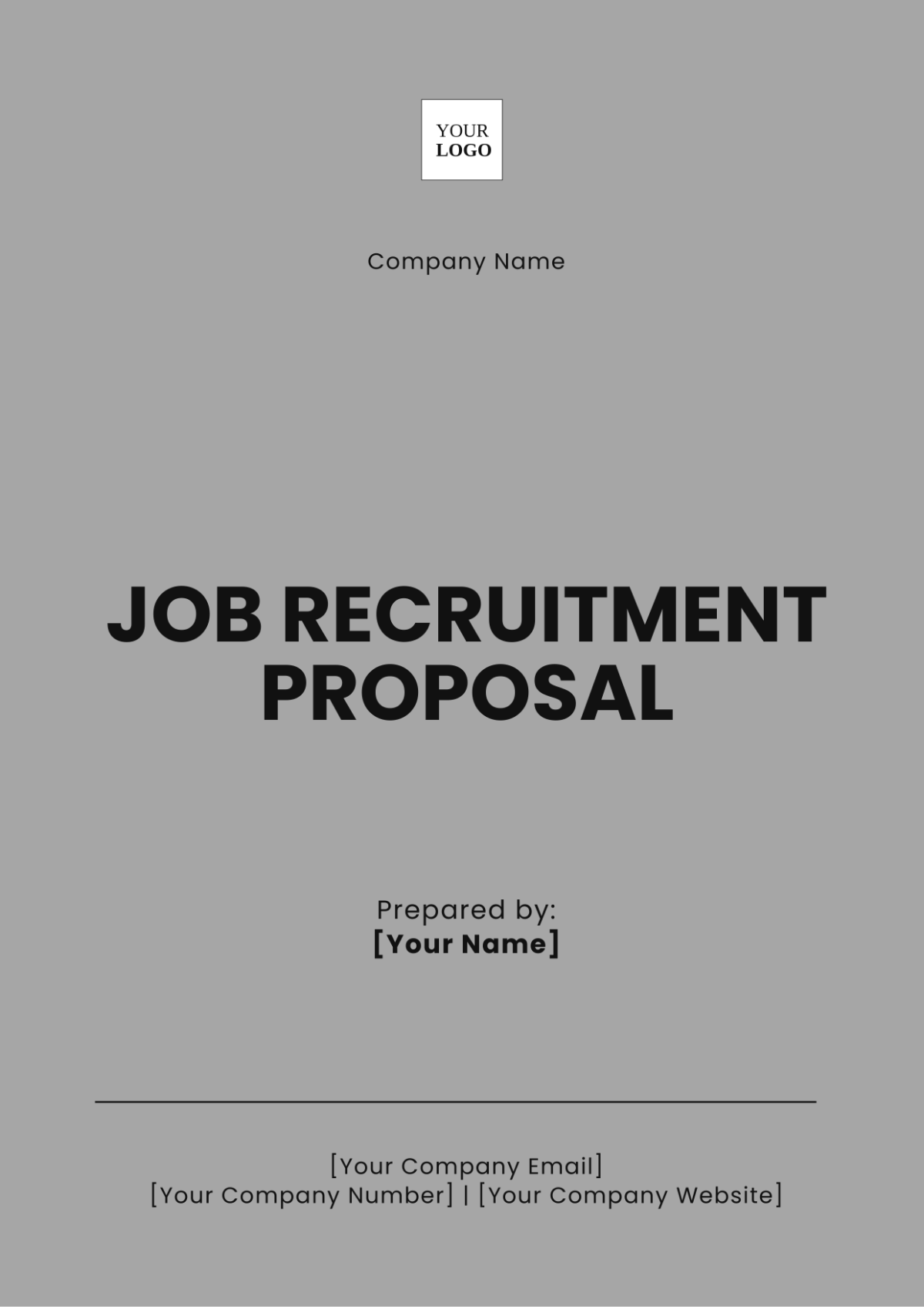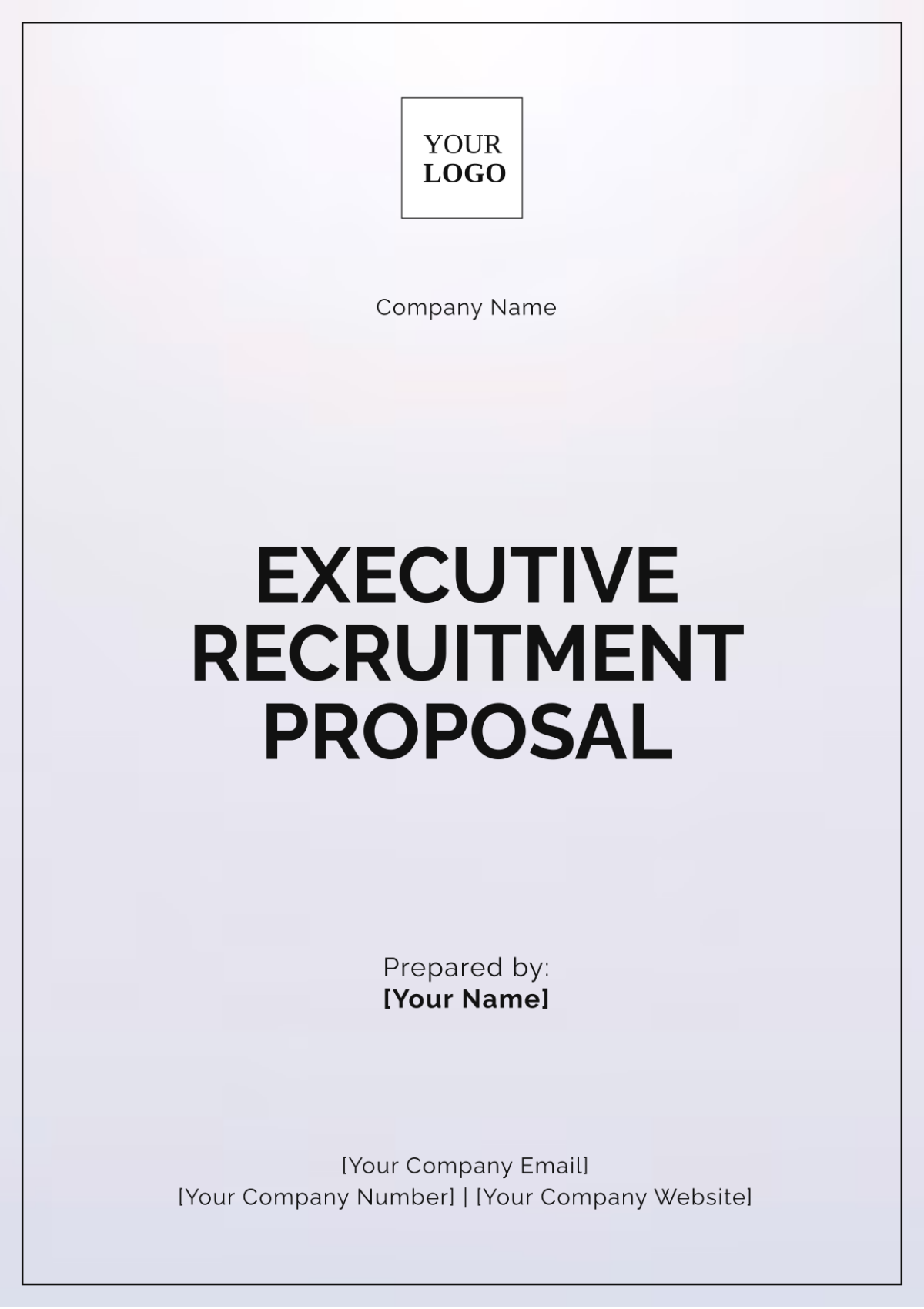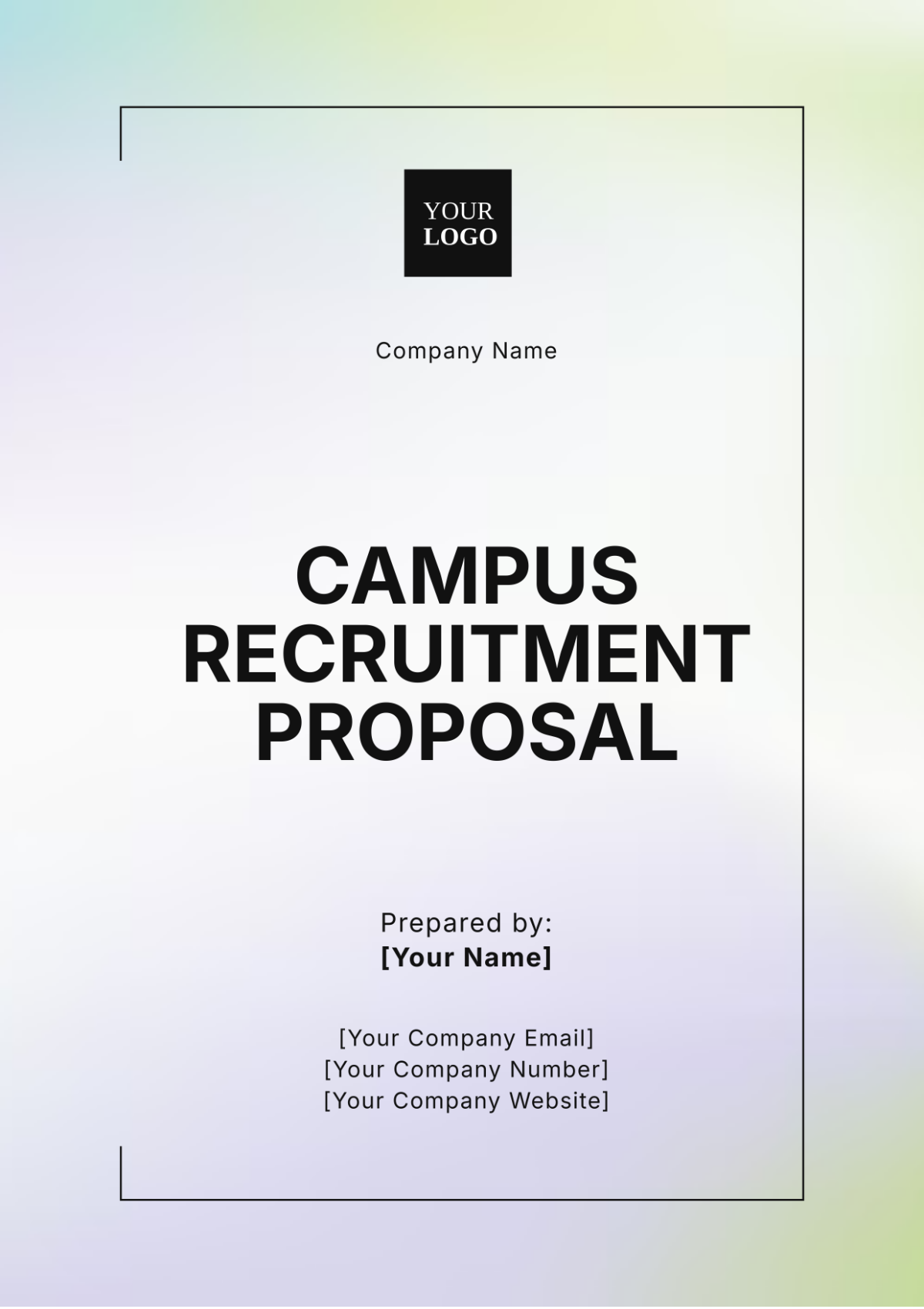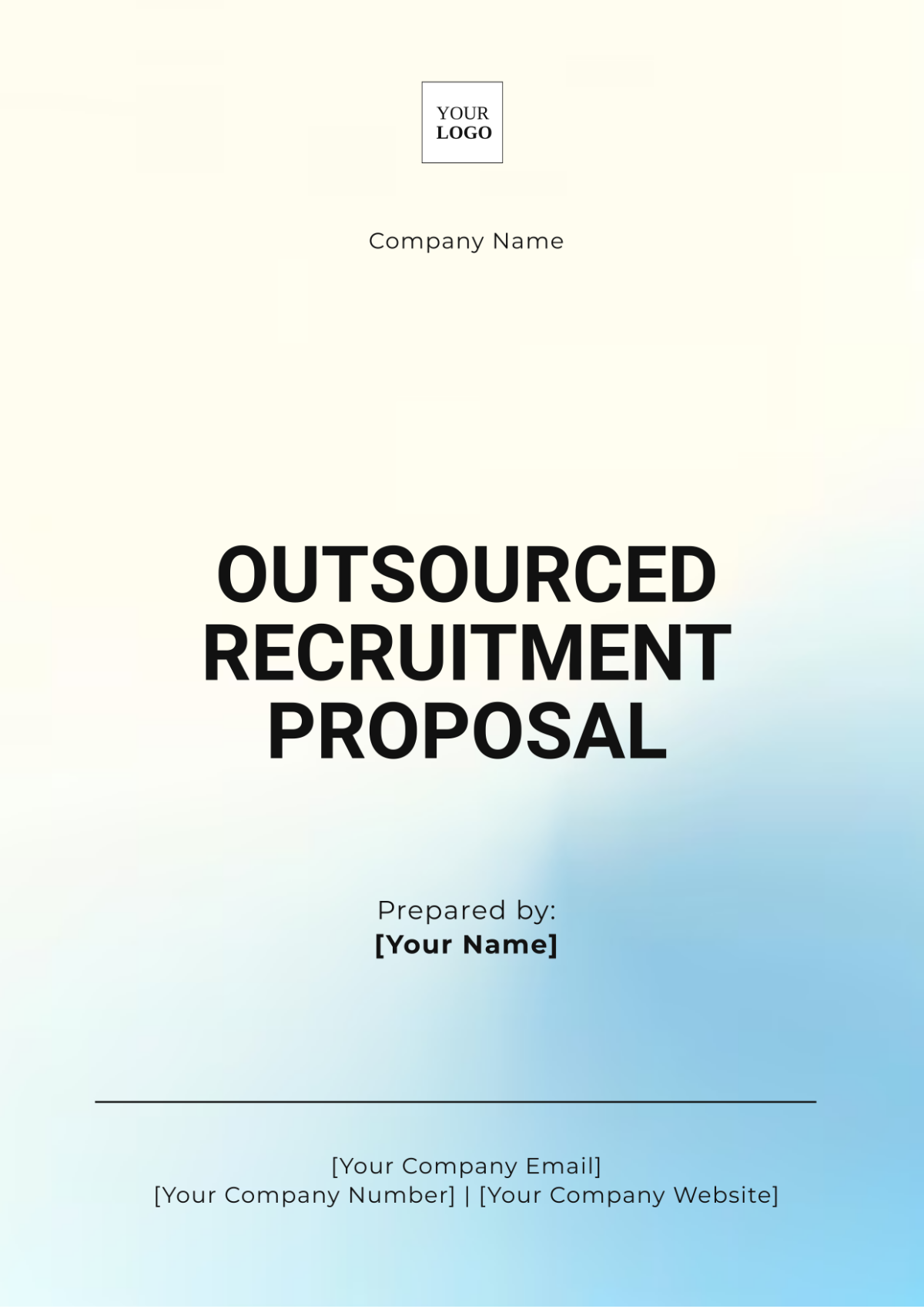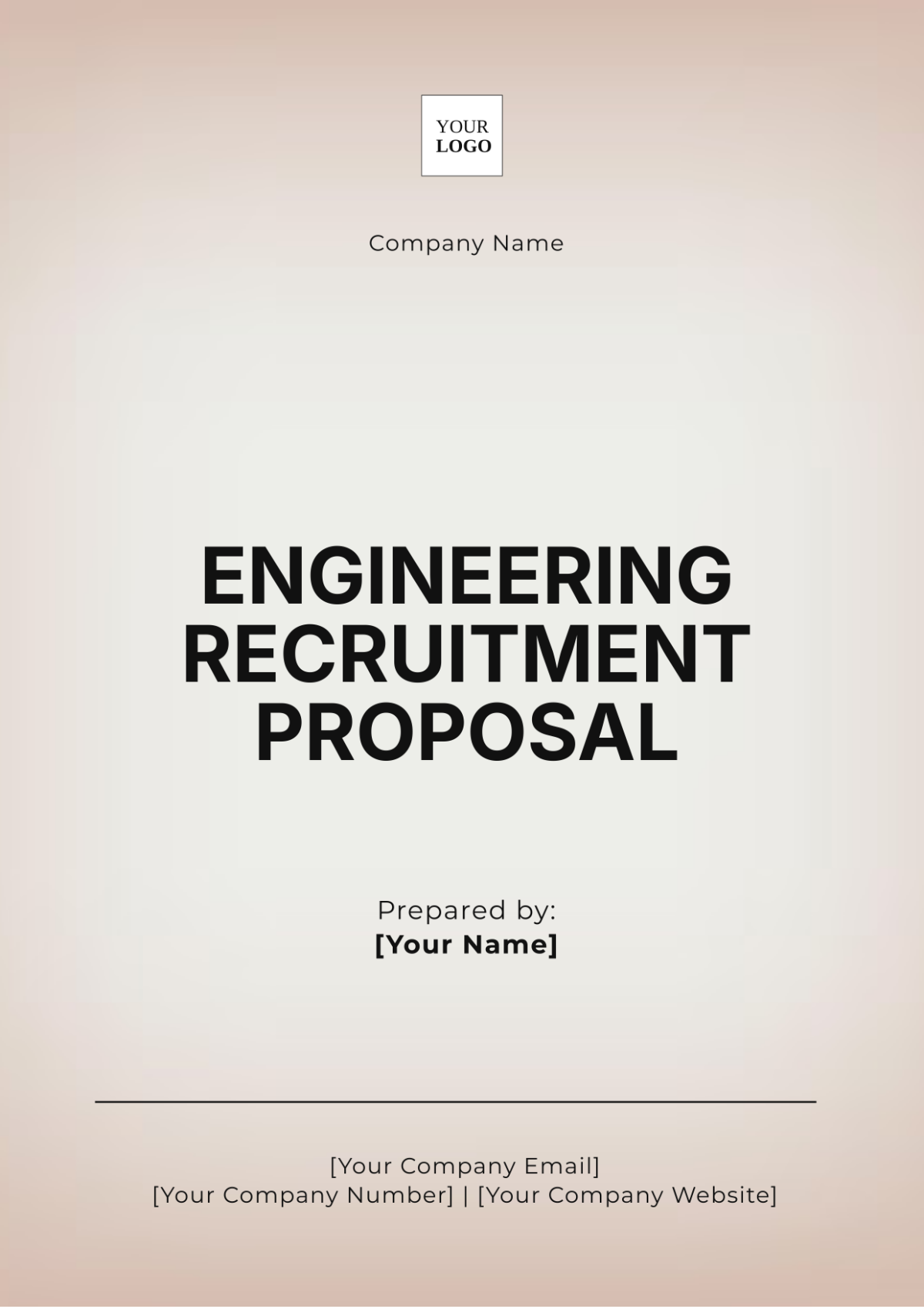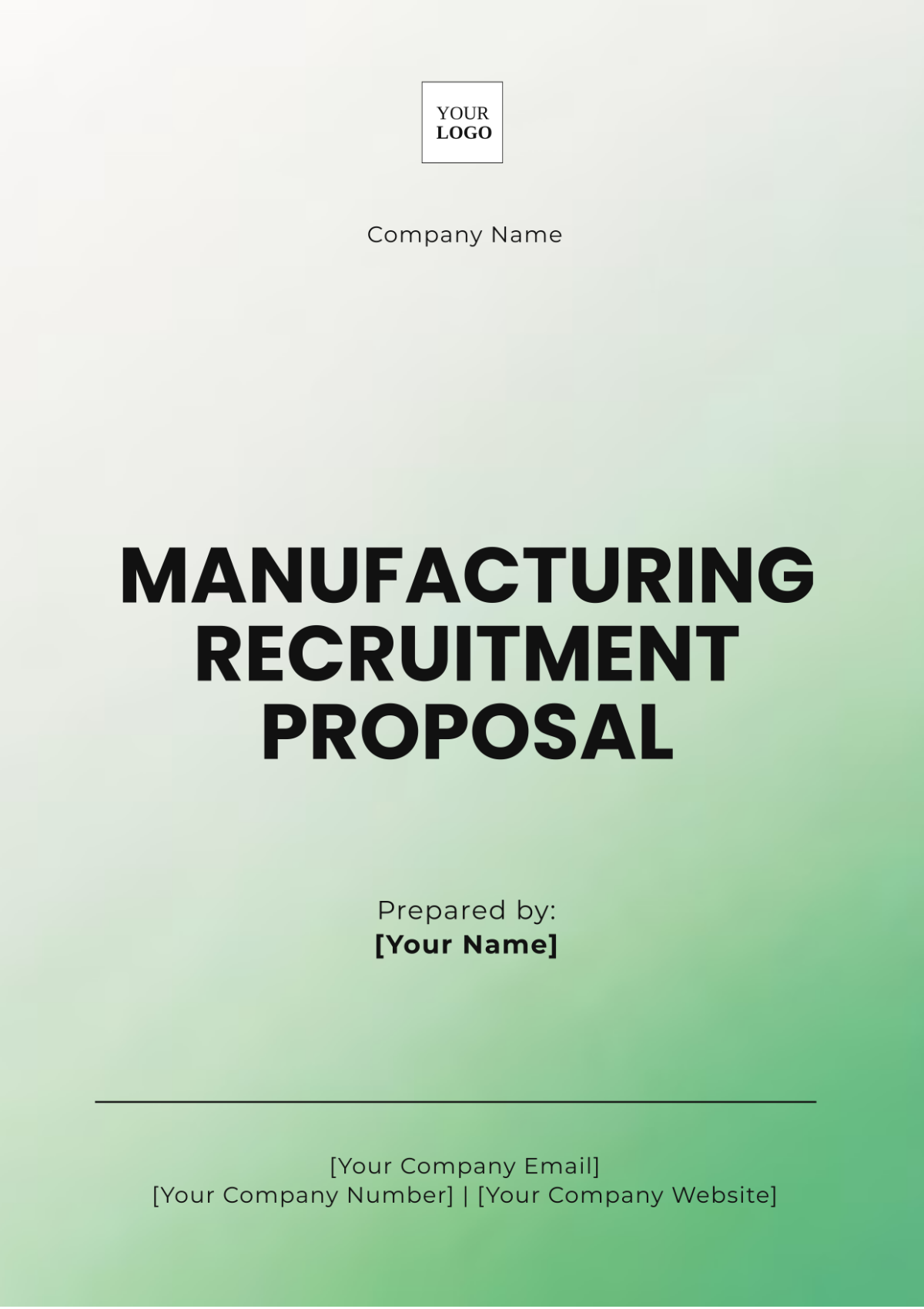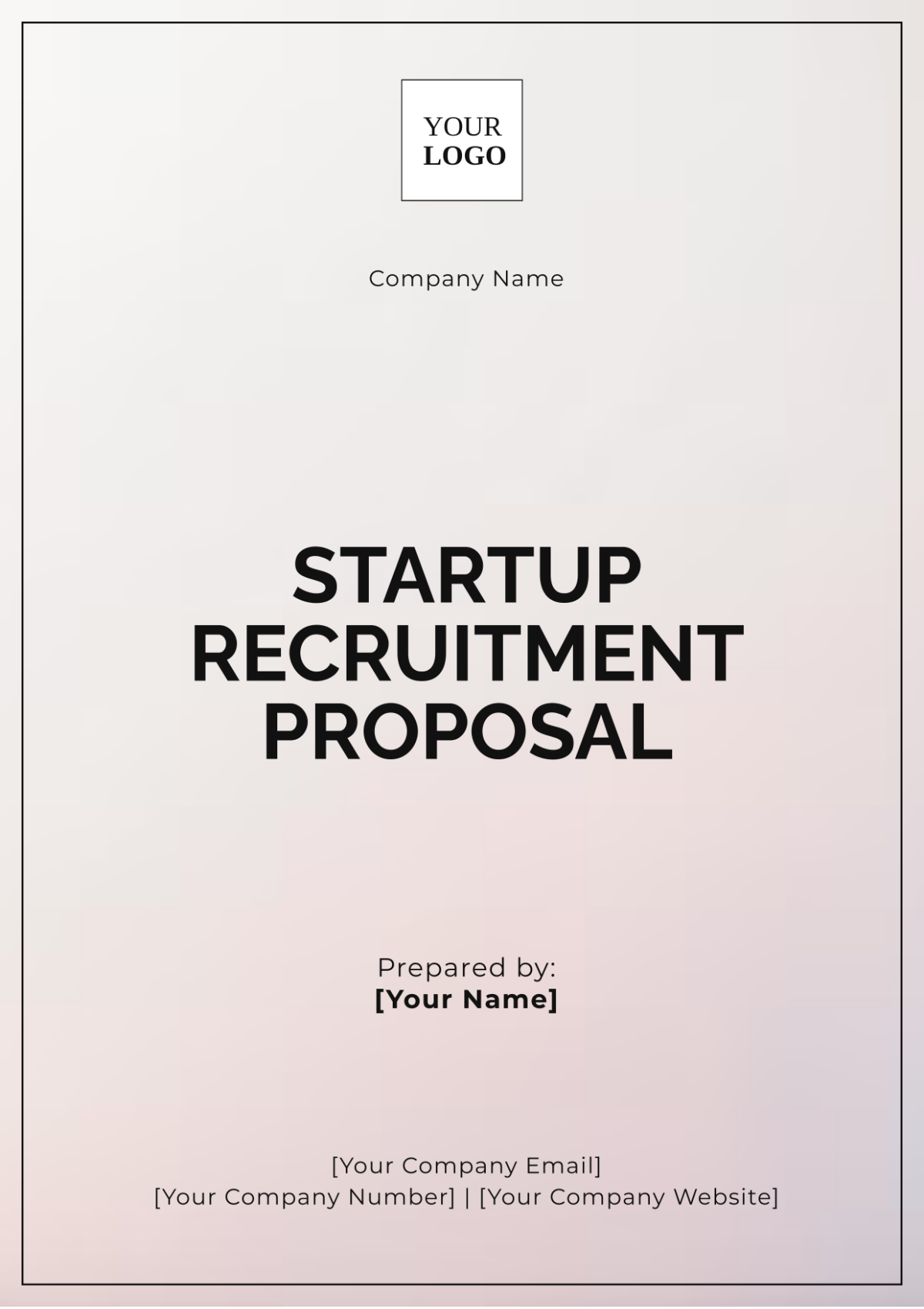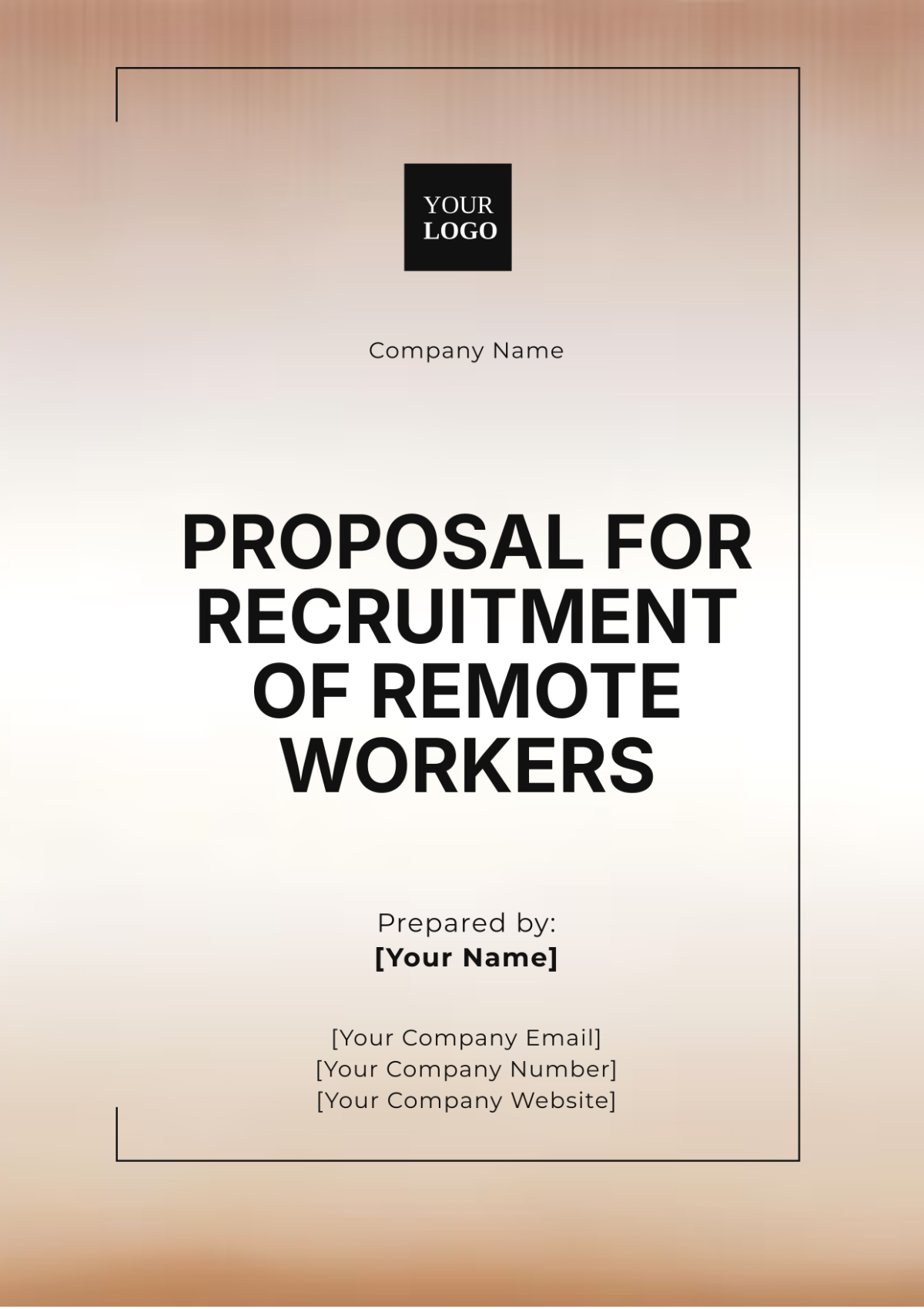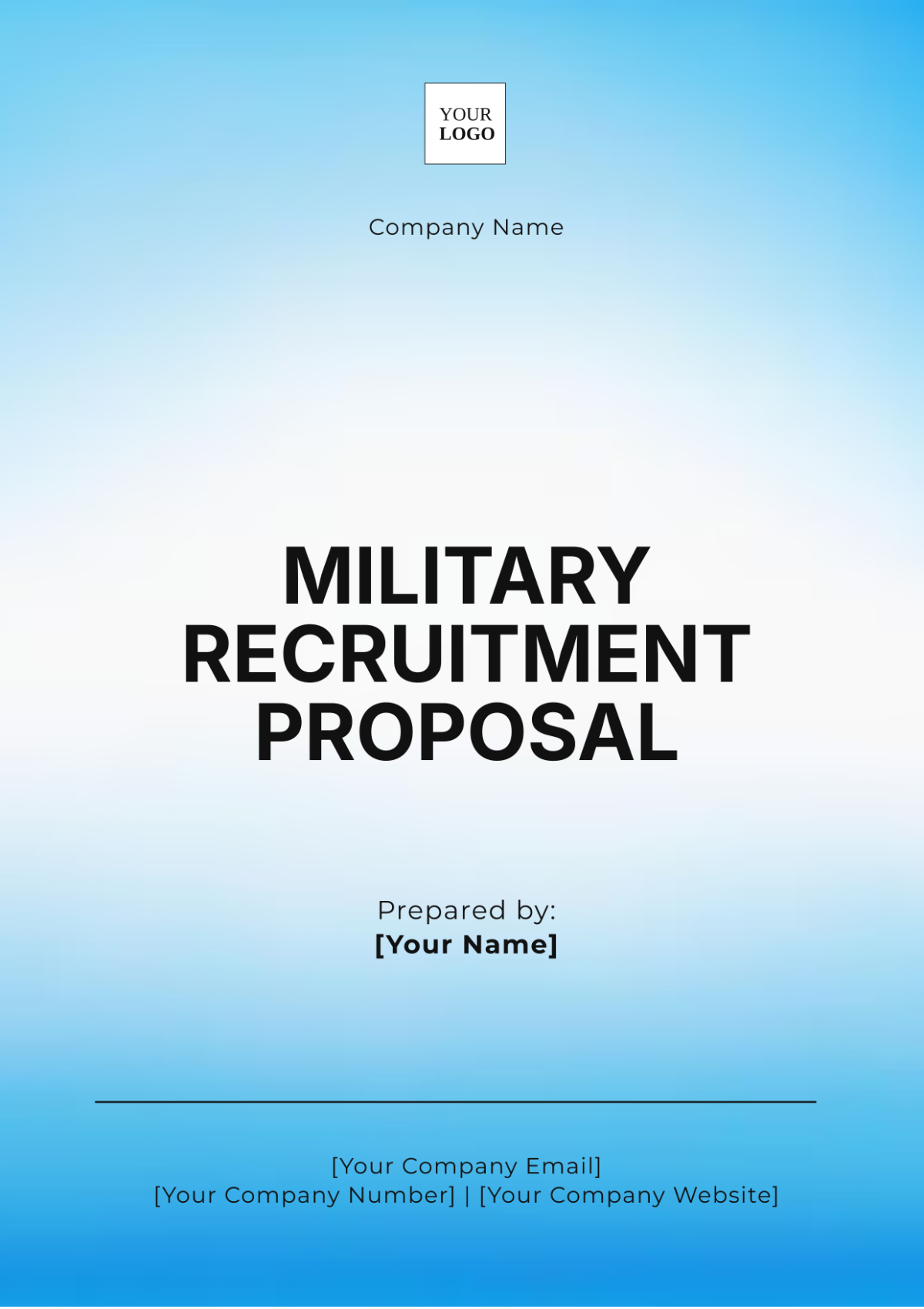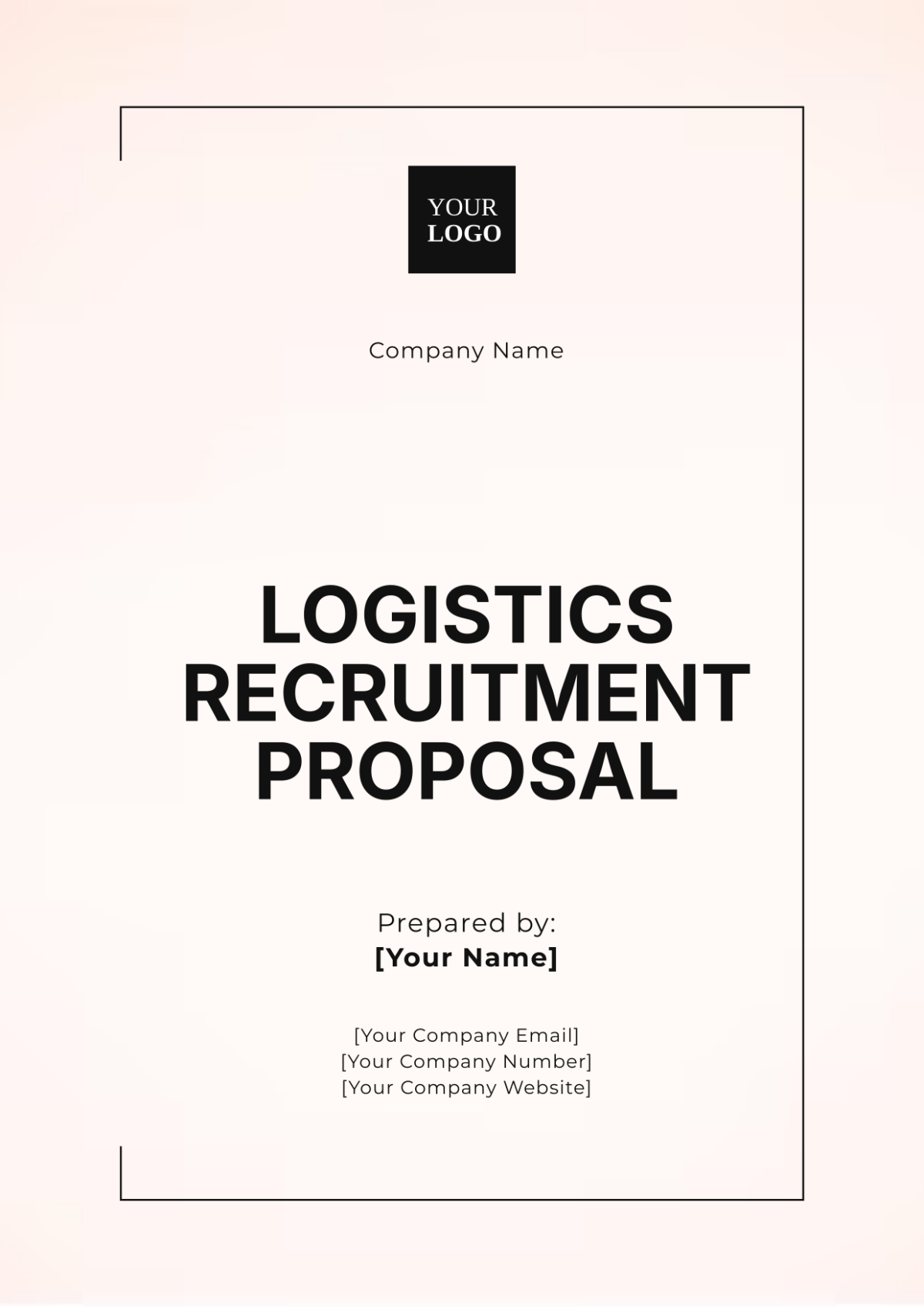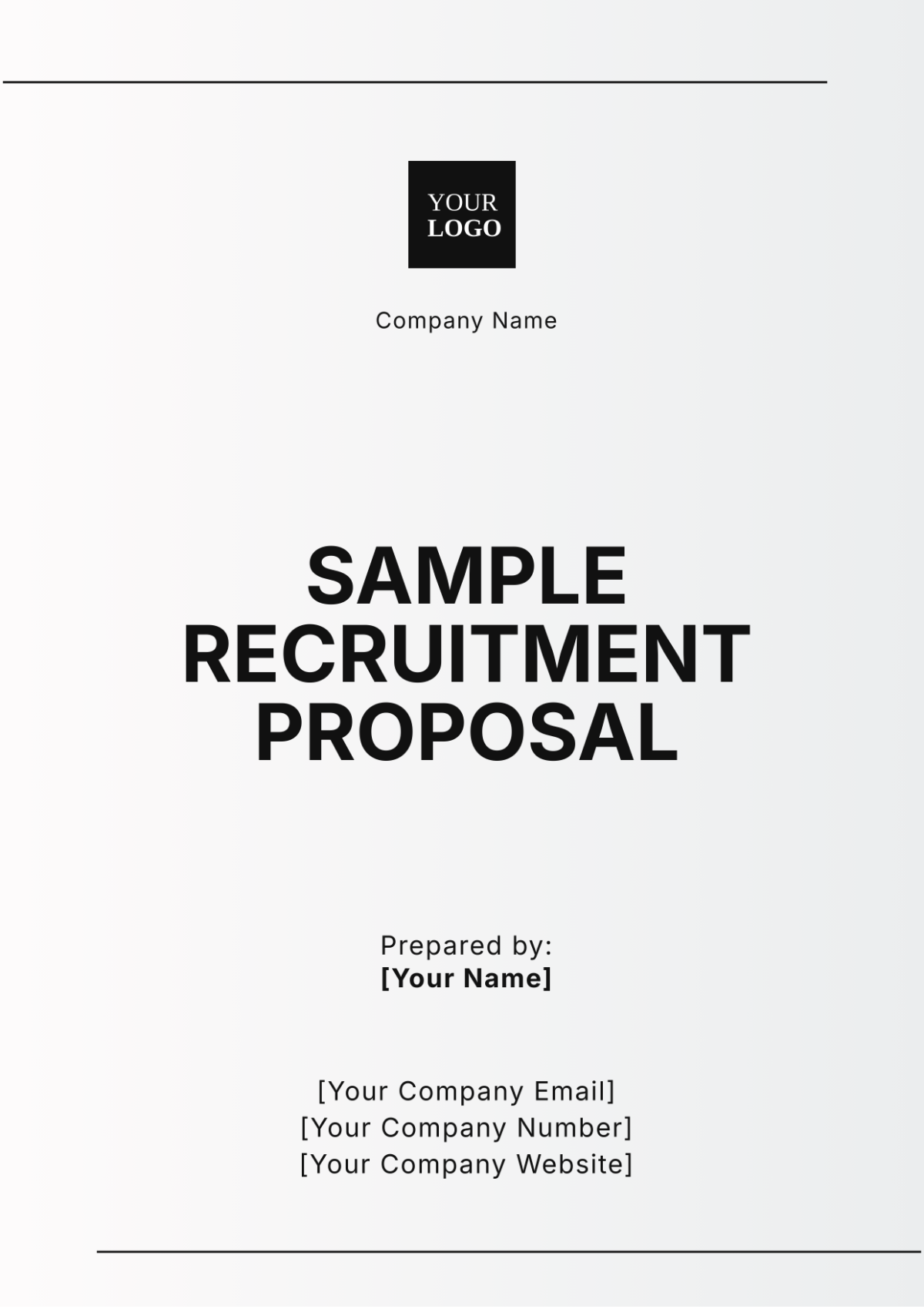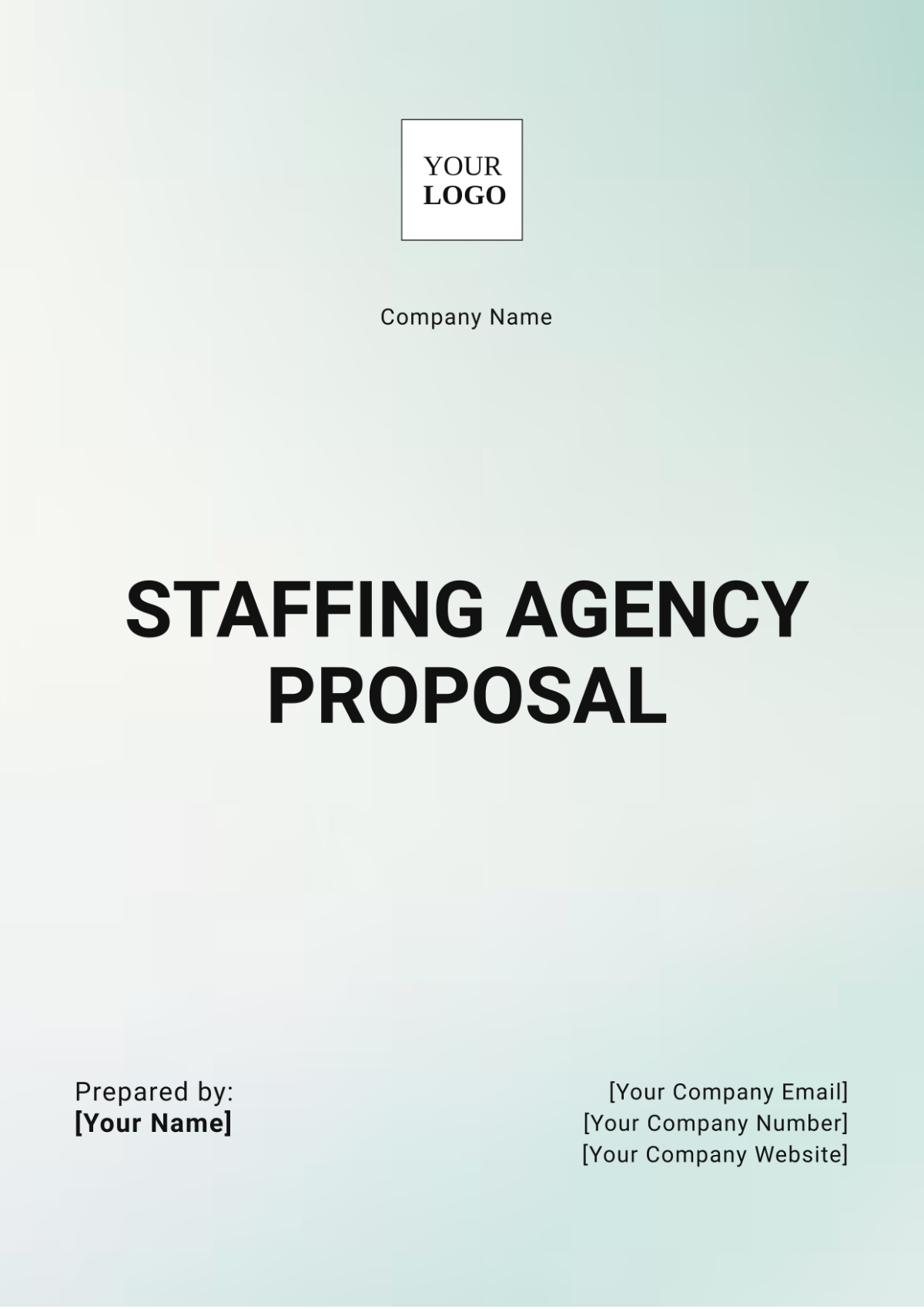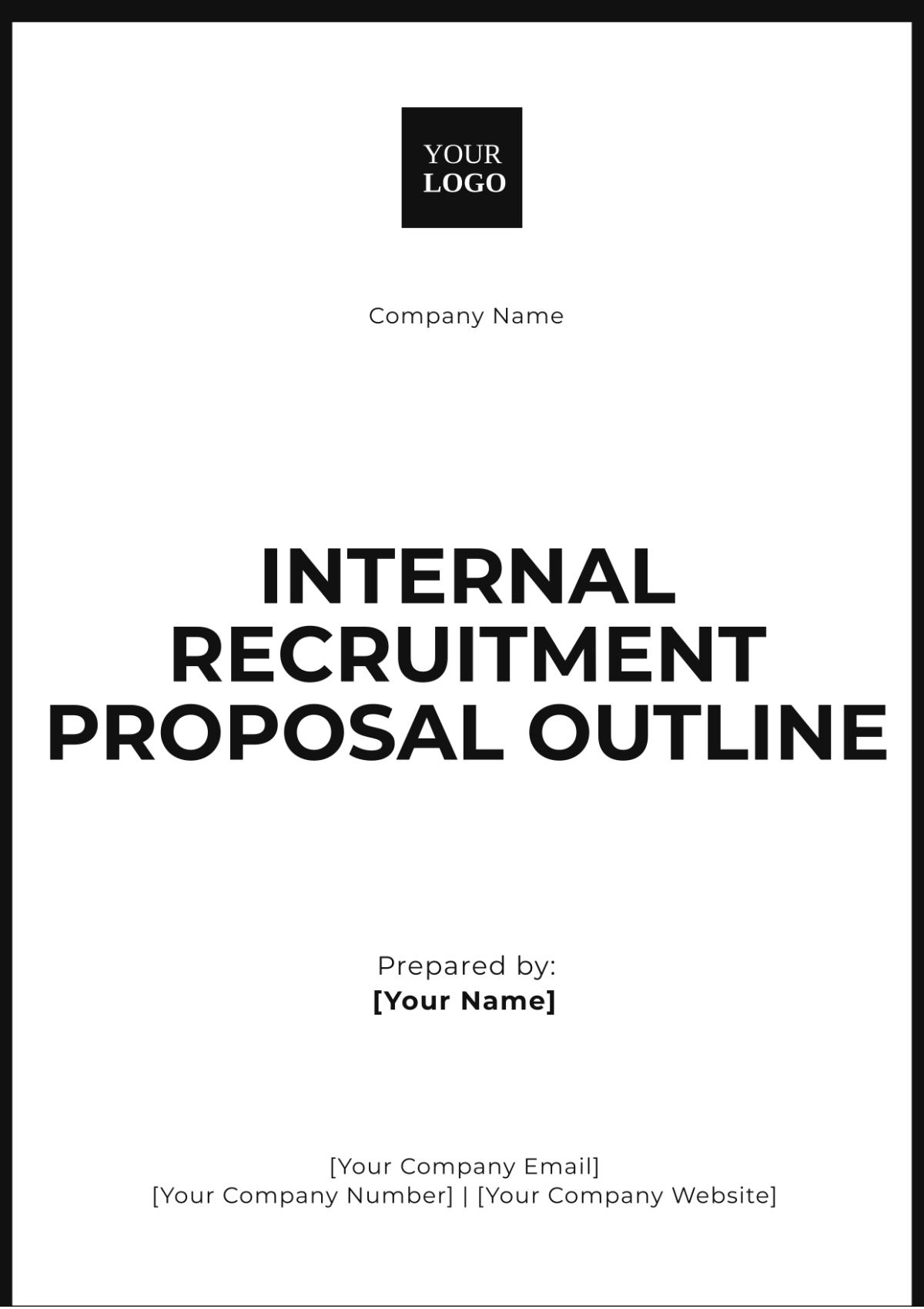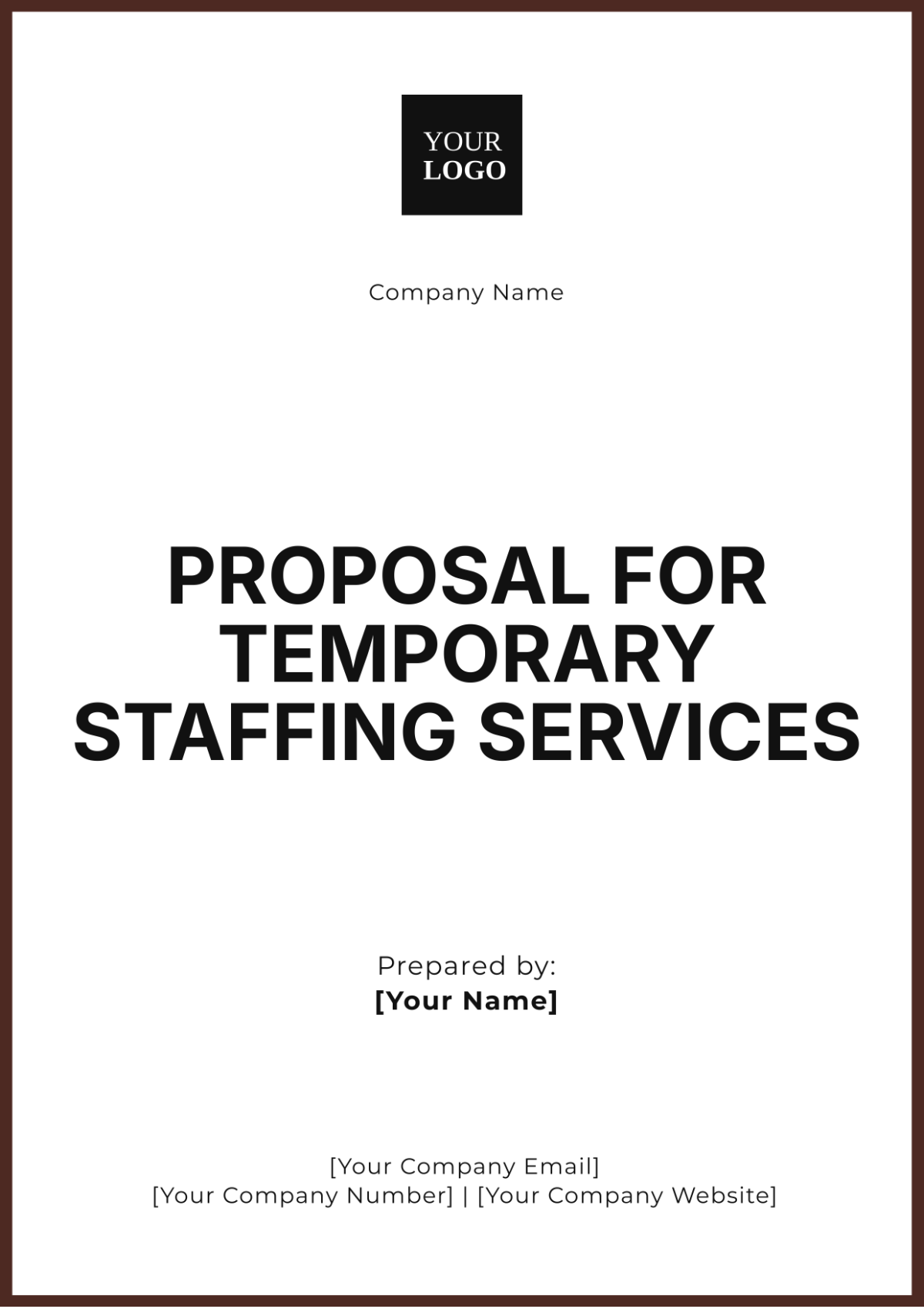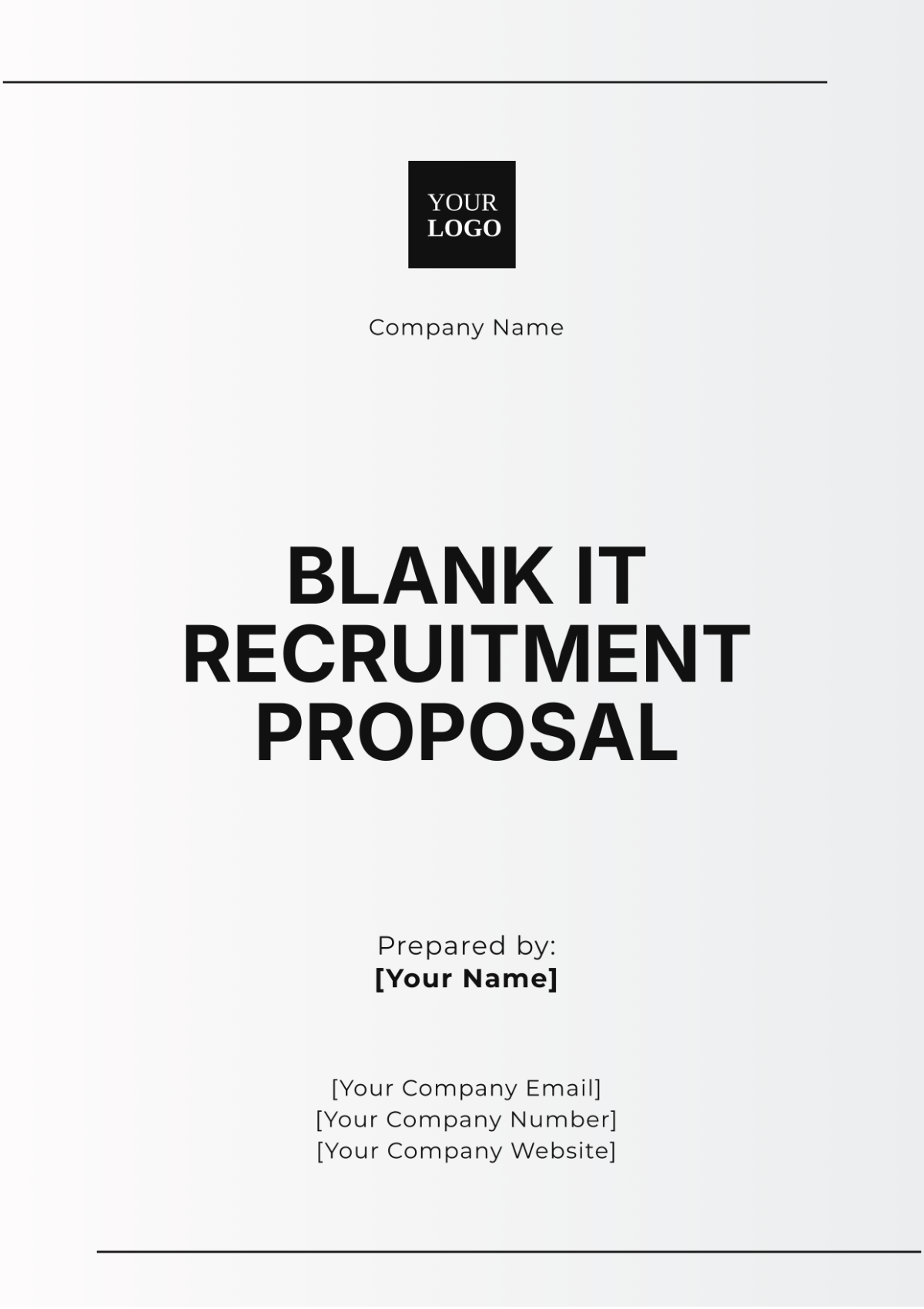Proposal for Recruitment of Remote Workers
Prepared by: [Your Name]
Date: [Date]
I. Introduction
This proposal aims to outline a comprehensive strategy for hiring remote workers. As the modern business environment increasingly supports remote work, it is imperative to adopt a structured and effective recruitment plan. The rise of digital transformation, accelerated by advancements in technology and changes in workforce expectations, has made remote work not just a preference but a necessity. This document details the recruitment process, target roles, responsibilities, benefits, and the tools and technology needed to support seamless remote operations.
II. Objectives
The primary objectives of this recruitment plan are:
A. To identify and hire skilled remote workers efficiently.
Implement innovative sourcing strategies to attract diverse talent pools from around the globe.
B. To leverage remote work benefits to enhance productivity and employee satisfaction.
Foster a positive work culture that promotes work-life balance, employee well-being, and engagement.
C. To utilize technology and tools that support seamless remote working conditions.
Ensure employees have access to cutting-edge technologies that facilitate collaboration and productivity.
D. To build a sustainable remote workforce that aligns with future business goals.
Prepare the organization to adapt to evolving market demands and workforce dynamics.
III. Target Roles
The specific roles targeted for remote recruitment include:
A. Software Developers
Focus on candidates with expertise in AI, machine learning, and cybersecurity.
B. Digital Marketers
Seek professionals skilled in SEO, content strategy, and data analytics.
C. Customer Support Representatives
Hire individuals with strong interpersonal skills and experience in remote customer service.
D. Data Analysts
Target candidates proficient in big data tools and statistical analysis to support data-driven decision-making.
E. Content Writers
Recruit talented writers with a flair for creating engaging content across various formats and platforms.
F. Remote Project Managers
Employ experienced project managers who can oversee remote teams and ensure project success across different time zones.
IV. Recruitment Strategy
A. Job Posting and Advertisement
Utilize multiple online job boards, social media channels, and the company’s website to post job listings. Ensure job descriptions are detailed and highlight the benefits of remote working, including flexible hours and a diverse work environment. Partner with remote work advocacy groups to reach a broader audience.
B. Screening and Interviews
Implement a rigorous screening process that includes initial application reviews, virtual interviews, and skill assessments. Utilize video conferencing tools for interviews to assess communication skills, cultural fit, and team collaboration potential. Incorporate AI-driven assessment tools to streamline the selection process.
C. Onboarding
Develop a structured onboarding program that includes virtual orientations, training sessions, and system setups to ensure a smooth transition for new employees. Create a mentorship program pairing new hires with experienced team members to foster integration into the company culture.
D. Continuous Engagement
Establish regular check-ins and feedback sessions post-onboarding to ensure ongoing support and address any challenges remote workers may face.
V. Technology and Tools
To support remote operations, the following tools and technologies will be utilized:
Category | Tool/Technology |
|---|---|
Communication | Slack, Microsoft Teams |
Project Management | Trello, Asana |
Collaboration | Google Workspace, Dropbox |
Video Conferencing | Zoom, Google Meet |
Time Tracking | Clockify, Toggl |
Task Automation | Zapier, Monday.com |
Performance Monitoring | 15Five, Lattice |
VI. Timeline
The proposed timeline for the recruitment of remote workers is outlined below:
Phase | Timeframe |
|---|---|
Job Posting and Advertisement | Weeks 1-2 (January 2050) |
Screening and Interviews | Weeks 3-6 (February 2050) |
Onboarding | Weeks 7-8 (March 2050) |
Continuous Engagement | Ongoing (April 2050 and beyond) |
VII. Budget
An estimated budget for the recruitment of remote workers is provided below:
Item | Cost |
|---|---|
Job Advertisements | $5,000 |
Screening Tools and Assessments | $3,000 |
Technology and Tools | $10,000 |
Onboarding and Training | $7,000 |
Continuous Engagement Initiatives | $2,500 |
VIII. Conclusion
This proposal outlines a strategic and structured approach to recruiting remote workers. By implementing this plan, the company can efficiently identify and hire top talent, benefit from increased productivity, and ensure employee satisfaction through the effective use of remote working tools and technologies. Embracing remote work as a long-term strategy not only enhances workforce flexibility but also positions the company for sustained growth and innovation in the future.
IX. Next Steps
Review and Approval: Present the proposal to senior management for feedback and approval.
Implementation Plan: Develop an implementation plan based on feedback to initiate the recruitment process.
Monitoring and Evaluation: Set up metrics to assess the effectiveness of the recruitment strategy and make adjustments as needed.
